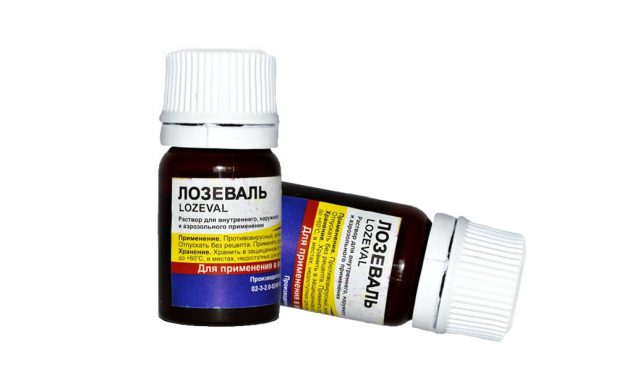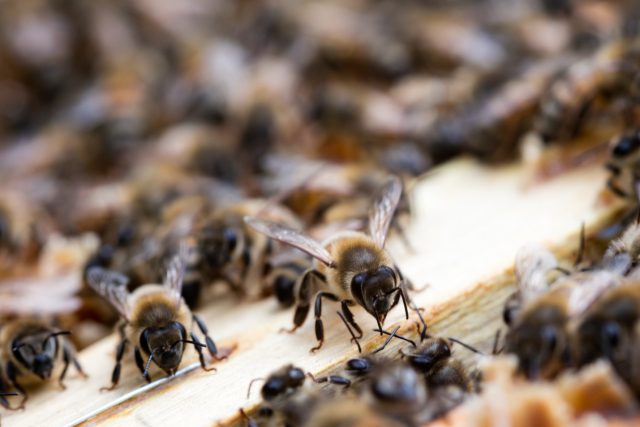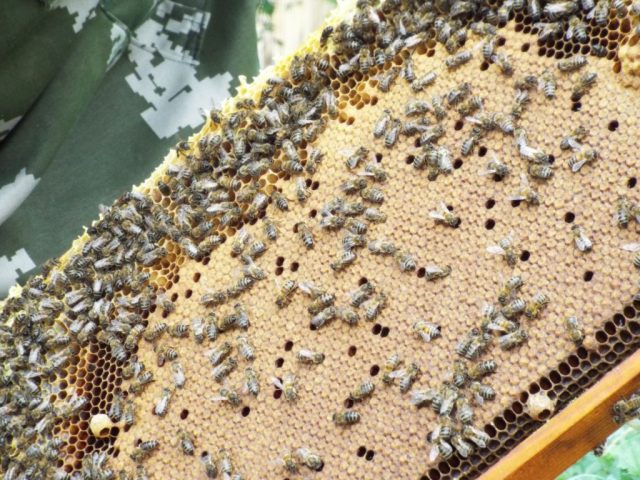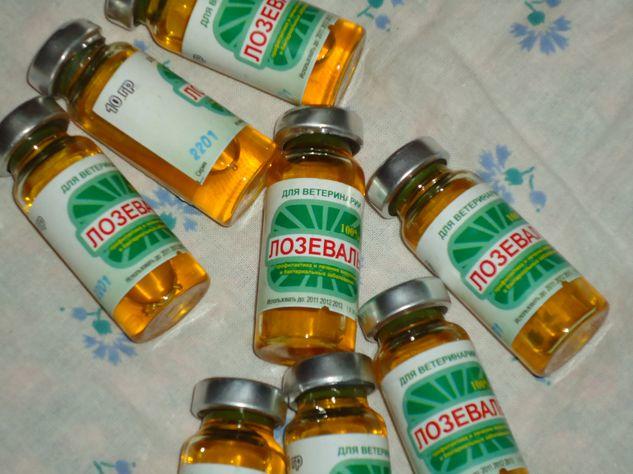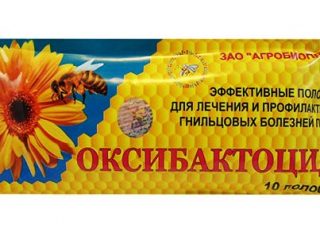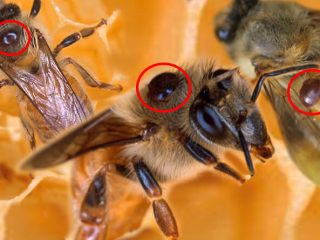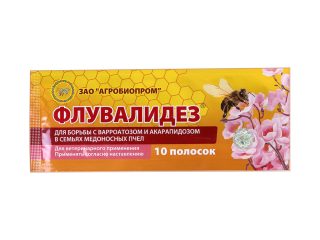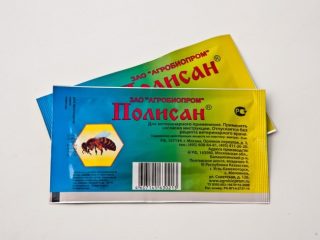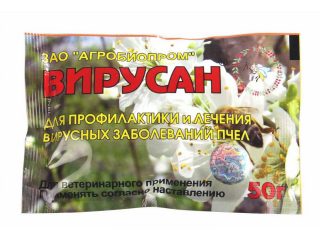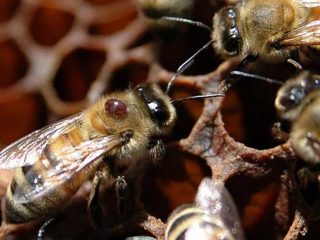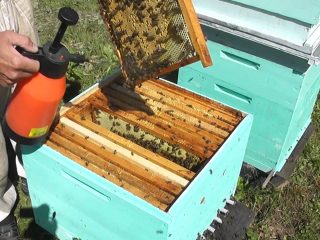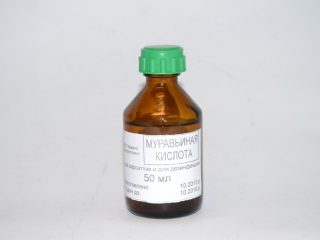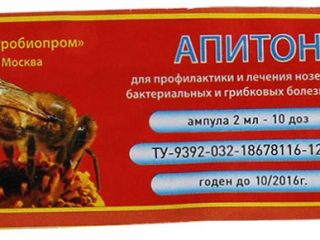Content
Experienced beekeepers are familiar with situations when, as a result of bees being infected by an infection, there is a danger of losing an entire hive. Lozeval is a popular antibacterial drug that can help cope with the disease.
Application of Lozeval in beekeeping
Lozeval for bees can be used both as a remedy and as a preventative. It is excellent for combating the following dangerous diseases affecting insects:
- sacbrood – an infection of viral origin that affects 2-5-day-old larvae and leads to their mass death;
- filamentovirus – a viral infection that affects the DNA of adults and queens, leading to the death of bees 7-12 days after infection;
- paratyphoid – an infectious disease of adults that causes digestive disorders, diarrhea and, as a consequence, leads to the death of bees;
- bee paralysis – a virus that affects the nervous system of young and flying bees, as a result of infection with which insects lose the ability to fly and die over time;
- various purulent diseases.
Treating bees with Lozeval as a prophylactic agent allows you to achieve the following results:
- increasing bee immunity and disease resistance;
- preventing the development of infectious diseases;
- increasing the efficiency of hives by 10-15%.
Composition, release form
The veterinary drug Lozeval is produced in the form of an oily liquid of yellowish-brown or orange color, which is packaged in bottles of 30-250 ml. The drug has a rather characteristic pungent odor.
The main manufacturer of Lozeval is Biostim LLC.
If the drug has a jelly-like consistency, there is a high probability that the storage rules were violated and a loss of beneficial properties is possible. The use of this drug is not recommended.
The drug contains the following components:
- triazole (organic compound of the heterocycle class);
- dimethyl sulfoxide (bipolar aprotic solvent);
- polyethylene glycol;
- morpholinium acetate (hetaprotector drug);
- distilled water.
Pharmacological properties of the drug Lozeval
The drug, getting on the integument of the insect, successfully penetrates the chitin and enters the tissues and organs of the bee. As a result, the active ingredients included in the drug begin to fight bacteria and viruses that have infected the cells, leading to the death of foreign microorganisms or their significant weakening.
The effectiveness of Lozeval in the fight against bee diseases is due to the following factors:
- the drug destroys proteins and nucleic acids of pathogenic viruses and microbes, causing their mass death;
- equally effective against gram-positive and gram-negative bacteria;
- increases the amount of immunoglobulin in the bee’s body, helping to increase resistance to various diseases.
As for removing the veterinary drug from the body, this period is no more than 24 hours. Thanks to this, the product does not accumulate in the tissues and organs of insects and does not affect their functioning and the quality of the product produced by bees.
Instructions for use
Instructions for use of Lozeval for bees contain a detailed description of the drug and rules for its use.
It is necessary to remember the safety rules when working with veterinary drugs:
- Do not eat, drink or smoke at the same time as use;
- after using the drug, you should thoroughly wash your face and hands with soap;
- It is forbidden to reuse containers from the drug - they must be disposed of;
- if Lozeval gets on your skin or mucous membranes, you must immediately rinse the area with plenty of water;
- If allergic reactions occur, you should immediately stop using the drug.
Lozeval is suitable not only for the treatment of bees, but can also be used to treat various diseases in poultry and animals.
If we talk about analogues of Lozeval, then here we can only mention a foreign-made drug - Izatizon. This drug has the same wide range of action and can be used to treat and prevent disease in bees. However, it is worth noting that the price of the imported drug is slightly higher.
Also, many beekeepers are concerned about the compatibility of Lozeval for bees with Fluvalidez. There is no evidence that concurrent use of drugs is unacceptable.
Dosage, rules for using the drug for bees Lozeval
For bees, the following dosage of Lozeval is recommended: 5 ml of the drug should be diluted in 300 ml of water. The resulting solution must be sprayed three times with an interval of 2 days.
If spraying does not give the required effect or it turns out to be lower than expected, re-treatment can be carried out no earlier than 5-7 days after completion of the previous course.
When the air temperature is below 18-19 °C, it is undesirable to spray the hives. At such times, Lozeval can be used as an additive to feeding. With this application, 5 ml of veterinary preparation is dissolved in 1 liter of syrup. Complementary food is given 50 ml per hive 2-3 times a day, no more than 1-2 times a week.
Side effects, contraindications, restrictions on use
There are no serious contraindications for the use of Lozeval in the treatment or prevention of diseases in bees. Usually, when the drug is taken correctly in a timely manner, its high effectiveness is noticeable.
The main limitation for treating beehives with Lozeval is related to the temperature regime: it is not recommended to use the drug at temperatures below 18 ° C.
As a preventative measure, spraying is carried out in the spring after the first flight of insects, then after the first pumping of honey and after the end of the production season.
Shelf life and storage conditions
The shelf life of Lozeval is set by the manufacturer at 2 years from the date of manufacture. It is important to observe storage conditions so that the drug does not lose its beneficial properties:
- storage in the original bottle;
- protection from direct sunlight and moisture;
- storage separately from food products;
- storage temperature – 10-35 °C.
Also, these conditions must be strictly observed when transporting the drug.
Conclusion
Lozeval is a broad-spectrum veterinary drug that can help fight many dangerous diseases that affect the beehive. Timely prevention using this product can increase the immune strength of insects and improve their resistance to infections.
Reviews
